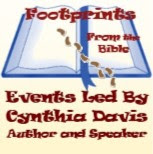Today, we look at the
Wonder of Touch. Throughout his ministry, Jesus very often used Touch to heal.
One instance of this is the leper that he touches and says “I will be made
whole.” (Mark 1:40-45, Matthew 8:2-4, Luke 5:12-16) It was against Jewish law
for anyone to touch a leper. They were exiled outside the towns and had to live
as beggars. That Jesus, a rabbi, willingly touched the leprous man probably
sent waves of shock through the disciples and the crowd.
Touch is related to the
sense of feeling. Lepers lose that sense as the disease affects their fingers
and skin. They are unable to tell if something is hot or cold or hard or soft.
Imagine how hard that must be. Every day we touch hundreds, even thousands of
objects without even giving any thought to the fact that our fingers are
sending messages to the brain saying, “that is hard”, “too hot, pull back!”,
“nice and comfy”. We get a sticker in our finger and immediately want to get it
out because the senses are sending messages of pain to the brain.
Even more important
than being able to feel if something is hot or cold, hard or soft, is the
comfort of real, loving, physical touch. We touch a baby’s skin or kitten’s fur
and are soothed by how smooth and soft it is. A friend touches our shoulder in
sympathy or we cuddle with our spouse. All these are important to our mental
health (say the experts). The leper had lost both the ability to feel anything,
but also the important comfort of having people, even family, touch him
lovingly.
Jesus’ action when he
“stretched out his hand and touched him” was as important as the words “I will,
be clean.” The compassionate, loving touch of Jesus’ hand was the beginning of
healing for the soul and body of this outcast.
Have you ever felt you
are so sinful that God couldn’t possibly want to touch you? Repeat after me:
There is NEVER a time when our heavenly Father doesn’t want to gather us in.
There is NOTHING we can do to make us less beloved to our God. There is NOT a
time when God will turn away from you or me. God will ALWAYS reach out and
touch us while saying “I will, be healed!”
When I was a little
girl, part of the pre-bedtime routine was to sit with my Daddy in a big green
chair while he read bedtime stories. Whenever I think of God holding me in
love, I tend to have that image in mind. What comes to your mind and heart when
you think of God touching you and holding you with loving arms? Can you sit in
God’s embrace and let God’s love wash over you to heal whatever feels ‘wrong’
in your relationship with God?
Next time we will consider the sense of Taste, in relation to God...




